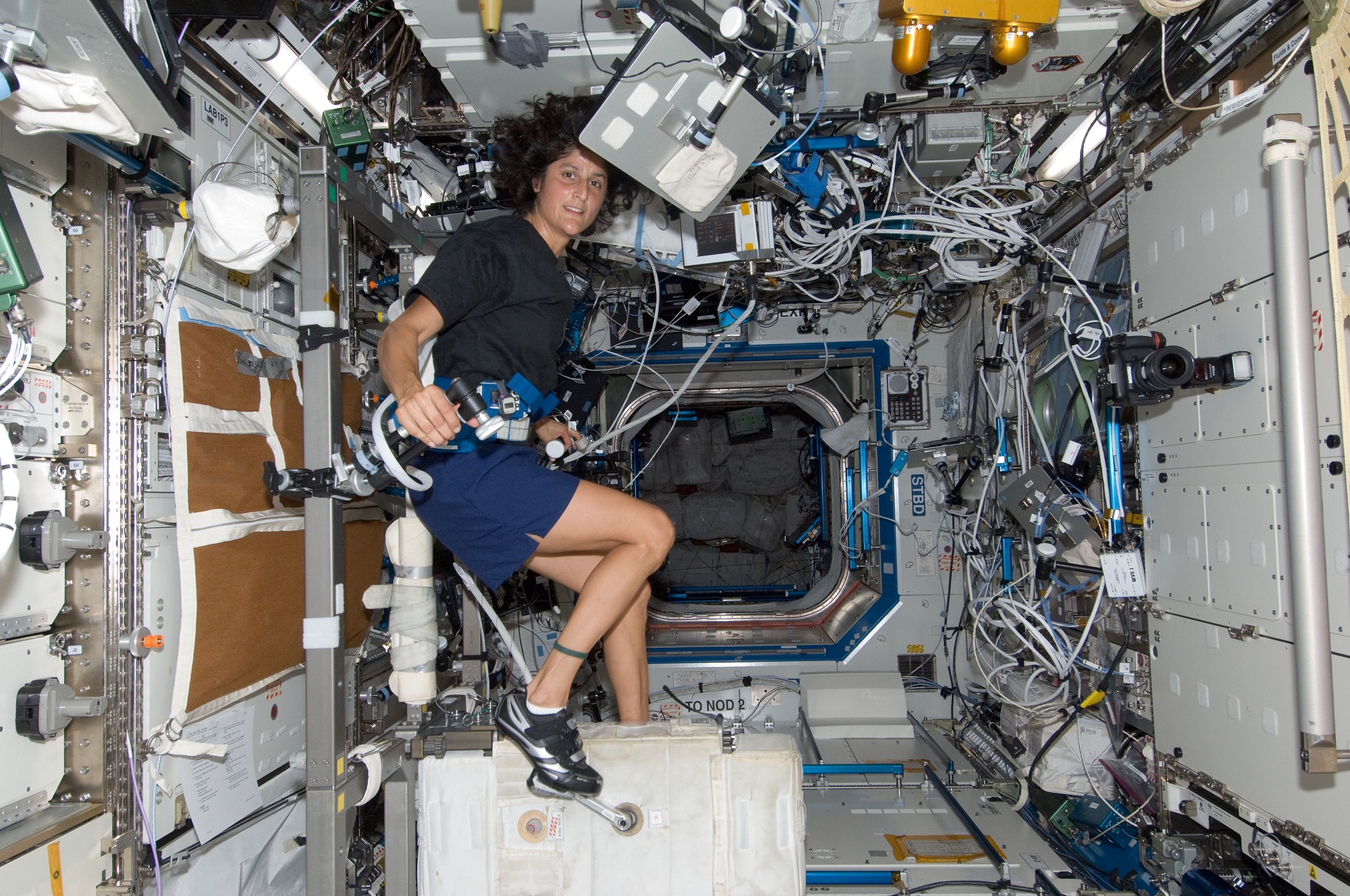

Floating around in space sounds like fun, but doing so takes a massive toll on your body. A study published on June 30 in the journal Scientific Reports found that spending just a few months in space changes astronauts’ bones, causing a loss of density equivalent to what most humans would lose in a couple of decades on Earth. More concerning is that after a year, many astronauts do not fully recover their lost bone mass.
The connection between bone mass and spaceflight has been studied for quite some time. One prior NASA study from 2007 estimated a two to nine percent loss in bone mass within nine months of space travel. Another study published in 2020 simulated the impact of a three-year spaceflight to Mars, finding a 33 percent risk of osteoporosis for long-distance travelers. Decreases in bone density can weaken a person’s skeletal structure and increase the risk of back pain, bone fractures, and loss of height.
[Related: Astronauts are losing 3 million red blood cells every second in space]
The poor osteopathic health likely results from the lack of gravity in space. Despite moving around, weightlessness removes pressure from the legs when standing or walking, mimicking the effects of extreme physical inactivity. “Even with two hours of sport a day, it is like you are bedridden for the other 22 hours,” Guillemette Gauquelin-Koch, the head of medical research at France’s CNES space agency, who was not part of the study, told The Guardian. Unless scientists figure out if the lost bone mass is fully recoverable, the findings jeopardize the hope of sending humans to Mars in 2030. “It will not be easy for the crew to set foot on Martian soil when they arrive–it’s very disabling,” Gauquelin-Koch noted in the same interview.
One hypothesis that the new study tested is whether astronauts can recuperate their lost bone mass by spending enough time back on Earth. Medical experts with NASA and its collaborators scanned the wrists and ankles of 17 astronauts (majority male) before, during, and after they’d spent months on the International Space Station (ISS). After one year back at home, nine astronauts still hadn’t recovered the density of their shinbones. The total bone mass loss across the nine subjects was comparable to a decade’s worth of bone mass loss that aging people face on Earth.
[Related: Your bones do more than you give them credit for]
Astronauts who spent the longest time on the ISS—four to seven months—showed the slowest recovery of bone density. It’s still unclear whether there’s a maximum amount of bone loss a person could endure in space. “Will it continue to get worse over time or not? We don’t know,” Steven Boyd, director of the McCaig Institute for Bone and Joint Health at the University of Calgary and study coauthor also told The Guardian. “It’s possible we hit a steady state after a while, or it’s possible that we continue to lose bone. But I can’t imagine that we’d continue to lose it until there’s nothing left.”
One shred of good news is that some exercises worked better than others in helping astronauts recuperate the lost bone mass. Deadlifting rather than cycling or running seems to work better at strengthening the remaining bone mass, which suggests that heavy lower-body exercises would be beneficial in preparing for long space missions.
Astronauts who were fit and in their 40s also did not seem impacted as much by the bone loss. “Fatigue, light-headedness, and imbalance were immediate challenges for me on my return. Bones and muscles take the longest to recover following spaceflight.” said Robert Thirsk, a former chancellor at The University of Calgary and a former Canadian Space Agency astronaut in a press release. “But within a day of landing, I felt comfortable again as an Earthling.”
